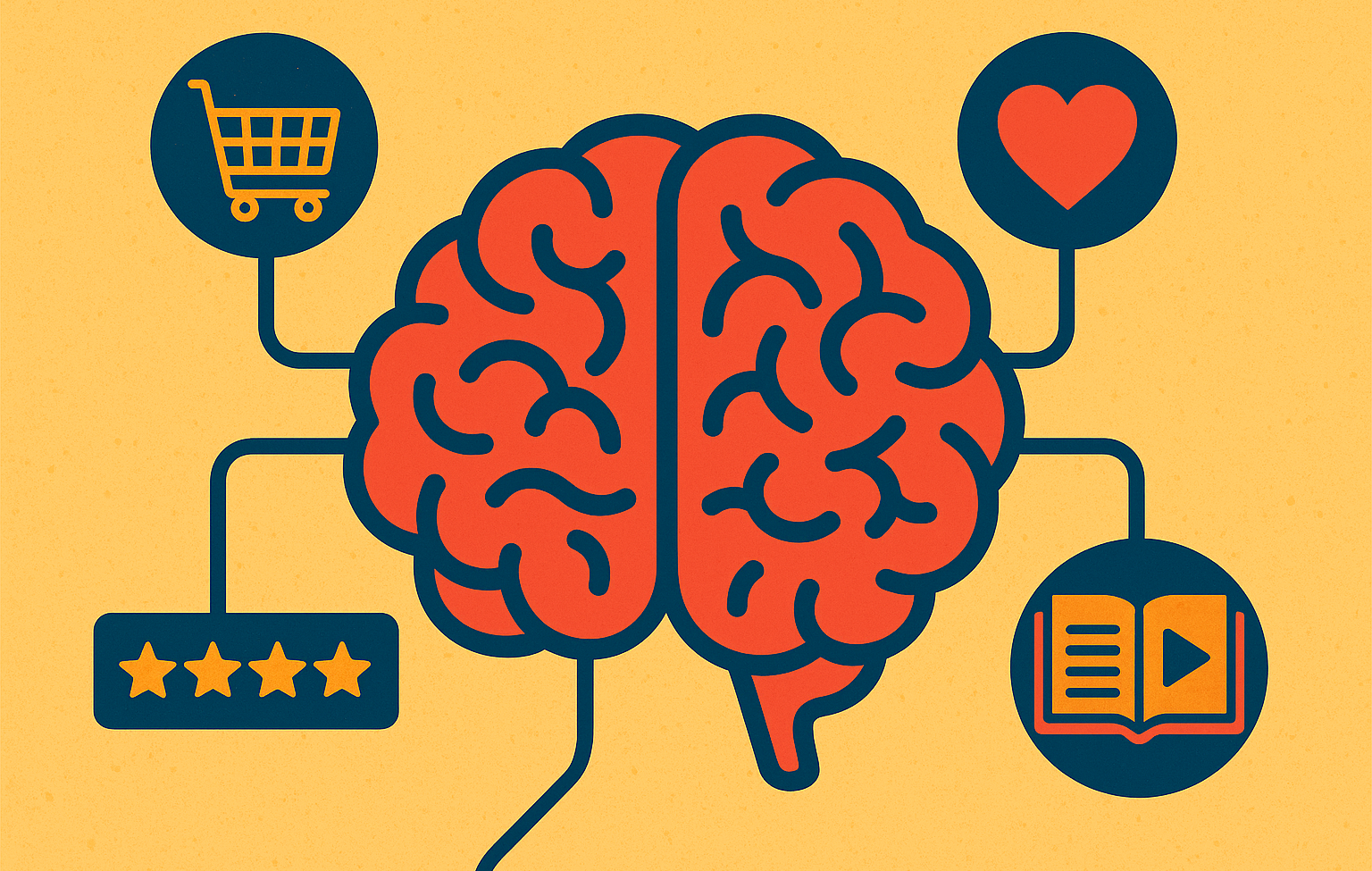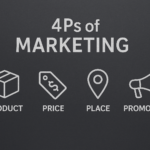10 Powerful Psychological Triggers in Marketing That Drive Consumer Decisions

Table of Contents
Great marketing is not built on budget alone. It is built on psychology by choosing the right psychological trigger. The best campaigns work because they align with how people think, feel, and act. Brands that understand human behavior create deeper connections, stronger loyalty, and higher sales.
This article explores ten key psychological triggers in marketing, supported by real case studies. If you want your next campaign to succeed, these are the principles to apply.
Why Psychology Matters in Marketing
Marketers sometimes forget that consumers are not purely rational. They buy with emotion first and justify with logic second. Research shows that up to 95% of purchasing decisions are subconscious. That is why psychology is essential.
- Consumers act emotionally before rationalizing.
- Memorable campaigns spark feelings that last longer than facts.
- Psychological triggers guide decisions without the buyer noticing.
When you design campaigns with these realities in mind, you create messages that stick.
1. Social Proof: The Crowd Shapes Behavior
People look to others when making choices. That is why reviews, testimonials, and endorsements are so powerful. Social proof reduces risk and builds trust.
Example: Amazon uses ratings, reviews, and verified purchase badges to encourage buying. A product with thousands of reviews feels safer.
Case for Pharma: In pharmaceutical marketing, patient testimonials and physician endorsements can help build confidence in a treatment. Showing how others benefit reduces hesitation.
2. Scarcity: Limited Supply Accelerates Action
When something feels scarce, people act faster. Scarcity creates urgency and raises perceived value.
Example: Booking.com displays “Only 2 rooms left” to push travelers toward quick booking.
In pharmaceuticals, limited access programs or early access trials can motivate physicians to adopt a product faster. The perception of exclusivity makes the product more attractive.
3. Urgency: Time Pressure Pushes Decisions
Closely tied to scarcity, urgency relies on time limits. Countdown timers and “today only” offers trigger immediate response.
Example: Flash sales on e-commerce platforms increase conversions because buyers fear missing out.
Pharma marketers can apply urgency through campaigns tied to awareness months, encouraging doctors to act now to address a pressing health need.
4. Personalization: Making the Message About Them
People engage more when they feel understood. Personalized marketing shows that the brand sees the individual, not just the market.
Example: Coca-Cola’s “Share a Coke” campaign replaced the logo with popular first names. Sales in the U.S. rose by more than 2% after years of decline.
In healthcare marketing, personalized education materials for patients and doctors build stronger engagement than generic messaging.
5. Authority: Trust Comes from Experts
People trust experts, authority figures, and credible organizations. Positioning your brand as an authority builds confidence.
Example: Skincare brands often feature endorsements by dermatologists. The expert opinion increases buyer trust.
Pharma example: Clinical trial data, endorsements from medical societies, and expert physician voices carry immense weight in adoption decisions.
6. Storytelling: Emotions Drive Connection
Facts are forgotten. Stories are remembered. Storytelling allows brands to humanize products and inspire action.
Example: Nike’s “Just Do It” campaign does not focus on shoe technology. It highlights stories of athletes who overcome challenges. Between 1988 and 1998, Nike’s revenue grew from $877 million to $9.2 billion.
For pharmaceuticals, storytelling can highlight patient journeys, showing how treatments improve real lives. This human element makes scientific advances relatable.
7. Consistency: Small Commitments Lead to Bigger Ones
Psychology shows that once people make a small commitment, they are more likely to follow through with larger ones.
Example: Free trials or low-cost entry products often lead to full purchases. Spotify offers free trials before converting users to premium.
Pharma application: Offering doctors trial starter kits or samples encourages initial prescribing, which can then build into long-term adoption.
8. Reciprocity: Give Value First
When someone receives value, they feel an obligation to return the favor. This is the principle of reciprocity.
Example: Brands offering free resources, samples, or consultations often see higher conversion rates.
Pharmaceutical marketers can apply this through educational webinars, free patient support tools, or starter kits. Providing genuine value builds goodwill and future sales.
9. Anchoring: First Impressions Shape Value
The first number or piece of information a customer sees becomes the “anchor” that influences perception.
Example: High original prices with a discount tag make the final price look like a bargain. Luxury brands use premium pricing to set a high anchor for value.
In pharma, presenting clinical efficacy data upfront creates a strong anchor in the physician’s mind before discussing side effects or challenges.
10. Identity: People Buy What Reflects Who They Are
Purchases often reflect personal identity. Consumers choose brands that reinforce how they see themselves.
Example: Apple markets its products as tools for creative, forward-thinking individuals. Customers buy not just technology but also an identity.
Pharma application: Campaigns that align treatments with patients’ desire for independence, vitality, or dignity create deeper emotional resonance.
🔗 Related Post: 10 Powerful Lessons from Failed Product Launches: Coca-Cola, Pfizer, and Nokia
Case Studies of Psychology in Action
Coca-Cola’s “Share a Coke” Campaign
By personalizing bottles with names, Coca-Cola leveraged personalization and social proof. The result was a significant sales boost after years of decline.
Nike’s “Just Do It” Campaign
By focusing on stories of resilience, Nike tapped into identity, storytelling, and motivation. The campaign drove massive revenue growth over a decade.
Both examples show how psychology, not just product features, drives success.
Lessons for Marketers
- Use social proof to reduce hesitation.
- Apply scarcity and urgency carefully to drive action without losing trust.
- Personalize campaigns to strengthen relevance.
- Build authority through credible voices.
- Tell authentic stories that align with your brand values.
- Leverage consistency, reciprocity, anchoring, and identity for long-term engagement.
🔗 Related Post: 7 Powerful Lessons from the Marketing Mix 4Ps Every Modern Marketer Must Apply
Application to Different Businesses
- Pharmaceutical marketers can use patient testimonials (social proof) and physician endorsements (authority).
- E-commerce brands can use stock counters (scarcity) and flash sales (urgency).
- Tech startups can personalize user experiences within apps.
- Local businesses can highlight customer stories and community connections.
15 Psychological Marketing Triggers to MAKE PEOPLE BUY From YOU! — Sell Anything
Final Thought
Psychology is not an add-on to marketing. It is the foundation. Campaigns that succeed tap into human emotions, mental shortcuts, and identity. When you apply these 10 psychological triggers, you move beyond selling products. You shape decisions, build loyalty, and create lasting impact.
Our Mission is to Provide Marketing and Business Insights for Pharma Leaders, woven with marketing strategies, practical tools, book summaries, and real-world case studies.
View All Articles
